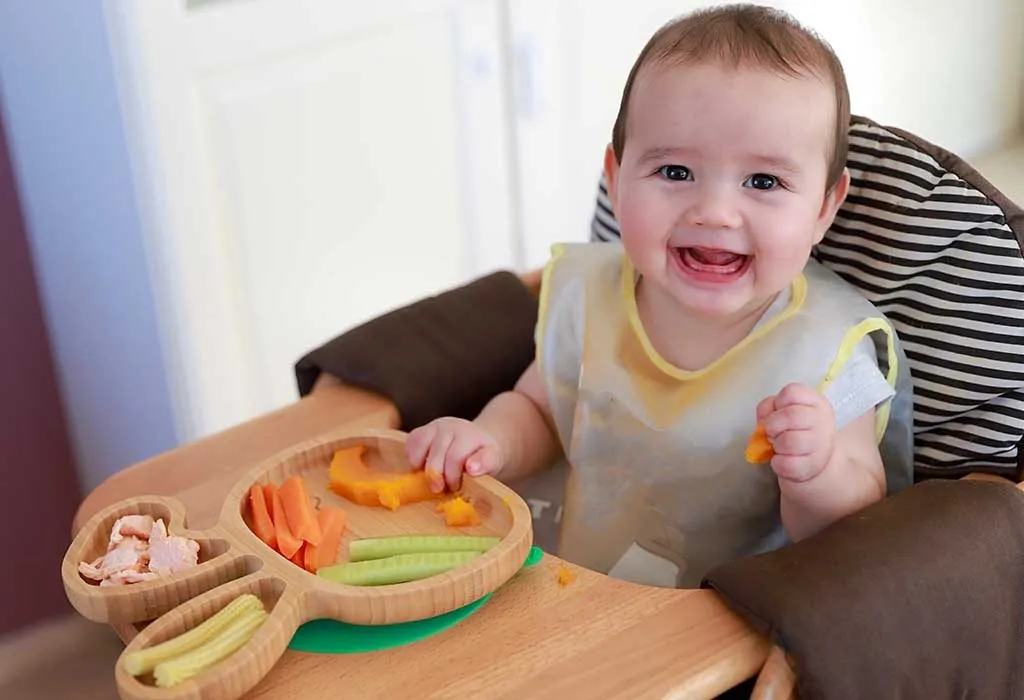Filling Tiny Tummies: What Does a 7-month-old Baby Eat?
Introduction
Welcoming a new life to your family is exciting and demanding all at once. As your baby hits the seven-month mark, you may be asking, 'what does a 7-month-old baby eat?' This article addresses your concerns about a 7-month-old's growth development, core ingredients of their diet, introducing solids, the role of breastmilk and formula, daily meal plan, and associated FAQs.
What Does a 7-Month-Old's Development Look Like?
Transitioning from a 6-month-old to a 7-month-old triggers lots of changes in your baby. The development stages grasp a myriad of milestones, each critical to your baby's growth. Let's delve into the key areas where a 7-month-old's progress is noticeably apparent:
- Physical Growth: One of the most exciting developments you'll witness is your baby's increased mobility. They're continually engaging with their surroundings, which often includes gaining the ability to sit without support and developing a firmer grasp. These physical improvements set the stage for self-feeding practices.
- Cognitive Development: Recognising sounds and responding to their own name is another major milestone for a 7-month-old baby. It indicates that their cognitive skills are enhancing.
- Vocal Skills: Babbling is at its peak during this period. You'll notice that your baby is trying to mimic sounds, paving the way for language development.
- Solid Food Readiness: The most evident sign of this readiness is interest in what adults are eating, and an improved ability to chew and swallow, making this an ideal time to introduce a diversified diet.
Each of these developmental aspects underscores the criticality of an appropriate, balanced diet which can fuel your baby's growth and sustain their ever-expanding exploration of the world around them.
Which Are the Core Ingredients of a 7-Month-Old's Diet?
When it comes to feeding a 7-month-old, it's not just about introducing solid foods, but ensuring those foods provide the necessary nutrients for their growth and development. The core components of your little one's diet should include:
- Fruits and Vegetables: They are vital for providing essential vitamins and minerals. An array of fruits like apples, bananas, and peaches, or vegetables such as carrots, peas, and sweet potatoes can be pureed to a soft consistency for easy ingestion.
- Grains: As powerhouse sources of energy, grains like oats and rice should be integrated into your baby’s meals. Preparing a soft porridge with these can offer your baby a wholesome meal.
- Protein-rich foods: Your baby's muscle development is supported by protein sources like meat, poultry, fish, and eggs. Consider starting with easily digestible variants like chicken or tofu and always ensure they are well-cooked and pureed.
- Dairy products: Even at this stage, calcium is crucial for promoting bone growth. Dairy products like cheese and yogurt can be included sparingly due to their potential allergenic properties. Always pick natural and unsweetened versions to avoid added sugars.
Despite their budding adventurousness with flavors, breastmilk or formula milk should not be replaced entirely, as they still provide substantial nutrition to your baby. These milks can continue to be a primary part of your baby's diet.
When and How to Introduce Solid Foods to a 7-Month-Old Infant?
Starting your 7-month-old baby on solids is indeed a milestone that comes with a mix of excitement and uncertainty. The good news is that this transition can be pretty smooth with the right approach.
Timing: When to Start Solids?
Typically, pediatricians recommend starting solids between four to six months. However, it's vital to assess individual readiness in terms of muscle control, doubled birth weight, and interest in foods. By seven months, most babies are adequately prepared for this new dietary adventure.
Strategies and Tips for the Introduction of Solids
• Gradual Introduction: Begin with soft, pureed foods and gradually move towards textured foods like mashed fruits and vegetables. Over the next few weeks, you can start including small, soft pieces of finger foods.
• Follow the 'One at a Time' Rule: Introduce one new food at a time. Wait for about 3-5 days before introducing another. This helps you spot any allergic reactions or digestive troubles early on.
• Supervised Meal Times: Make sure your baby is sitting upright when eating, and always supervise solids feeding to prevent choking.
• Let Baby Guide You: Watch for cues that your baby is full, such as turning away or refusing opening the mouth. Never force-feed.
Examples of Baby’s First Solid Foods
Starting solids doesn't have to be complicated. Keep it simple with these options:
• Pureed fruits such as apples, bananas, or pears
• Soft, well-cooked vegetables like sweet potatoes, peas
• Infant cereals, like single grain oatmeal or rice cereal mixed with breastmilk or formula.
Remember, introducing solids is a journey; displaying patience and perseverance goes a long way in transitioning your baby from liquids to solids. If you have any concerns, always consult your pediatrician.
What Role Does Breastmilk or Formula Play in a 7-Month-Old's Diet?
Breastmilk or formula continues to wield substantial influence over your 7-month-old baby's diet, even as they begin foraging into the exciting world of solid foods. Here we look at some of the key reasons why these milks are vital nutrition sources for your baby.

1. Primary Nutrition Source: Breastmilk or formula remains the main source of nutrition for your little one providing them with most of the calories and nutrients they need at this age.
2. Essential Nutrients Provision: These milks are stocked with vital nutrients, such as Vitamins A, B, C, D, and E, calcium, and iron, which are instrumental in your baby’s growth and development.
3. Immunity Boosters: Breastmilk boasts antibodies and immune factors that help your baby fend off infections and diseases. Likewise, infant formulas are fortified with nutrients to strengthen your baby's immune system.
4. Flexibility in Meal Preparation: You can incorporate breastmilk or formula into your baby's meals. For instance, it can be mixed with cereal to fashion a wholesome meal, introducing your baby to new textures while nourishing them with essential nutrients.
5. Bridging Nutritional Gaps: They are the perfect fallbacks to ensure your baby's nutritional needs are met, particularly if your little one is a picky eater or is having a slow day with solid foods.
Given all of these benefits, nutrition experts recommend continuing breastmilk or formula feeds until your baby's first birthday, and thereafter as long as mutually desired by mother and baby. It's indeed a tough act to follow, underscoring why it features dominantly in a 7-month-old's diet.
Unveiling the Daily Meal Plan for a 7-Month-Old Child
At seven months, infants typically enjoy 2-3 solid meals a day, in addition to regular breastmilk or formula feeds. Let's break down a typical day's diet into a more digestible format.
• Morning Meal (Breakfast): Start your child's day on a healthy note with a serving of oatmeal. This grain is an excellent source of energy and easy for your baby's tummy to digest.
• Snack: Between breakfast and lunch, plunge into the fruit domain. Opt for mashed fruits such as bananas or cooked apples - they're packed with essential vitamins and fibre.
• Afternoon Meal (Lunch): For the mid-day meal, lean towards pureed vegetables or meats. These can be prepared soft enough for your baby's delicate gum while delivering protein necessary for growth.
• Early Evening Feed: Breastmilk or formula remains a staple and should be offered 4-5 times throughout the day. Ideally, one such feed should be given in the early evening.
• Evening Meal (Dinner): Round off the day with another serving of pureed food. Alternating between veggies and meat assumed for variety can help your child embrace different flavors.
Remember, your little one's appetite can fluctuate. Follow their hunger cues and never try to force-feed them. In fact, making mealtime enjoyable can have positive long-term effects on your baby's relationship with food. This daily meal plan ensures that your baby gets well-rounded nutrition for their growth and development.
Conclusion
Feeding a 7-month-old requires detailed knowledge and attentiveness. Their growth not only depends on solid food introduction but also sustenance of breastmilk or formula milk. A balanced diet rich with essential nutrients is integral for their growth. And always remember, each baby is different, so follow their pace while introducing new foods.
Related FAQs about what does a 7 month old eat
How Much Should a 7-Month-Old Eat per Feeding?
At 7 months, a baby generally eats about ¼ to ½ cup for each meal, along with 1 to 2 snacks each day. They receive about 24 to 32 ounces of breast milk or formula daily. Each baby differs in their appetite, so follow your baby's hunger signals.
How to Handle Food Allergies in Your 7-Month-Old?
Introduce new foods one by one with a gap of 2-3 days in between each. This way, identifying a potential allergen becomes easier. If an allergic reaction occurs, stop that food and consult your pediatrician for further advice and guidance.
Can a 7-Month-Old Drink Water and Juices Yet?
Yes, a 7-month-old can start drinking small amounts of water. Avoid giving your baby juice, especially those with added sugars. If you choose to give juice, limit it to 4 ounces a day and only offer it with meals.


